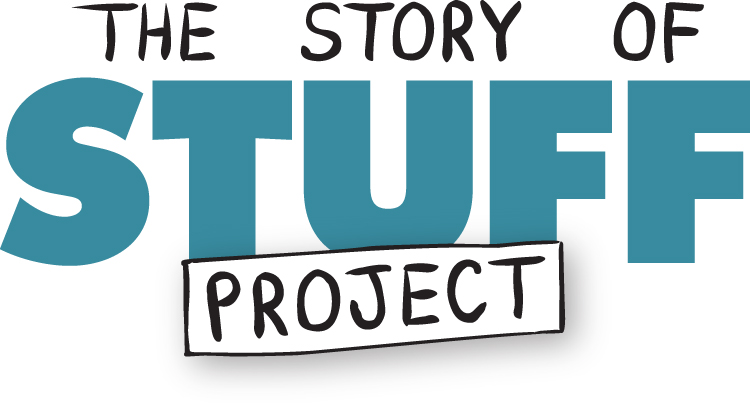Story of Solutions: Replace more with better
The following piece was published in the November-December 2013 NewsNotes.
The following piece was published in the November-December 2013 NewsNotes.
On October 1, the Story of Stuff Project released The Story of Solutions, the educational series’ ninth webfilm; it focuses on how communities find answers to the problems named in the eight preceding videos, beginning with The Story of Stuff.
Walking through the displays of innovative projects at the Green Festival in Washington, D.C., one can see vendors’ stalls selling items made of recycled goods. While it is impressive that so much can be recycled, it is still stuff that ultimately will be thrown away, begging the question of whether buying more things addresses the underlying problem. In this latest eight-minute animated video, producer Annie Leonard takes an innovative look at the shifts needed to move our economy toward greater sustainability and equity. Both paradigm shifts as well as changes in our everyday activities are highlighted in what Leonard outlines as “the Game of More.”
The underlying myth that the economy simply needs to grow has us all buying into a story of “more” and taking our focus away from “better.” If we focus on “better” we can work together to create better health, better jobs and a better chance to survive on the planet, rather than competing with one another to gain “more.”
What Leonard proposes is not easy; it means changing the goal of our entire economy. But doing so might bring us more in line with “God’s economy.” We’re at a crossroad of social, economic and ecological crises, and at the heart of it all is an economic system that tries to lock interconnected societies into unsustainable patterns of production, over-consumption and waste generation, all driven by the mandate to grow. To date, this growth-driven economic model has proven to promote overgrowth in some areas while leaving vulnerable populations with no benefits of development.
Maryknoll missioners who daily witness the quality of life diminish in isolated communities see the urgency of shifting the focus to earth as a whole. Through the work of the Maryknoll Office for Global Concerns, missioners urge political leaders of all nations to turn their attention toward refocusing the objective of systems and institutions, especially economic ones, toward a life of fullness and dignity for all people and Earth.
Changing the goal of the global economy is a tremendous task, but if we turn our attention away from finding new ways to play the game of “more” to game-changing solutions we can steadily build an economy that values a life of fullness, complete with the important things like safer, healthier water, land and people who have just what they need to thrive and flourish.
Changing the point of the game empowers people to take back power from corporations. It decreases the wealth gap between those who over-consume the world’s resources and those who have difficulty meeting basic needs; and it brings us closer to a world where people opt to live simply so that others might live with dignity.
The Story of Stuff project has been working since 2008 to generate a much needed honest conversation about the impacts of our consumer-crazed culture on people and the planet. Since its release in 2008, the first video, The Story of Stuff, has been viewed more than 30 million times worldwide and has gained on online community 450,000 strong.
Other educational resources available at StoryofStuff.org include a best-selling book, a co-created a high school-level educational curricula called Buy, Use, Toss, a study program for faith communities, and a hope-filled podcast series called The Good Stuff that chronicles the efforts of everyday changemakers. These resources in addition to eight online movies telling the story of some of the stuff commonly consumed (bottled water, cosmetics and electronics) as well as the underlying roots of unsustainable production (corporate influence on elections, how the U.S. budget is appropriated, what the solutions could be and finally how changes can be made.

